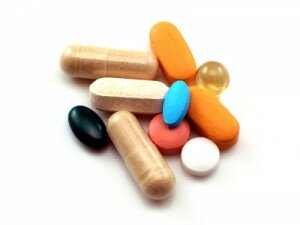 When it comes to nutrition for women, there are basically two things that are almost always true: you need more nutrients and fewer calories than men do. It is important to know which nutrients are the most critical and how many calories you need each day so that you can strike a balance. Having this information will help you in maintaining a healthy weight and preventing nutrient deficiencies.
When it comes to nutrition for women, there are basically two things that are almost always true: you need more nutrients and fewer calories than men do. It is important to know which nutrients are the most critical and how many calories you need each day so that you can strike a balance. Having this information will help you in maintaining a healthy weight and preventing nutrient deficiencies.
Fewer Calories
As adults, women naturally need fewer calories than men do. Women who do not exercise need about 1,200 calories every day. This is considerably less than men who do not exercise. Now, if you do work out, you will need to increase your caloric intake to compensate for this. How much it is increased by will ultimately depend on you level of physical activity. There are formulas that a nutritionist can use to help you determine exactly how much you need to sustain your body. Caloric intake is a funny thing and you definitely want to make sure that you are getting enough without getting too many.
More Nutrients
There are some nutrients that women need a lot more of than men do. Iron is a good example. Women that are 19 to 50 should be getting 18 milligrams of iron each day. Now, men only need eight milligrams, so as you can see this is a big difference. Since women are consuming fewer calories and have a menstrual period every month, they need a lot more iron. There are supplements that can be taken to ensure you are getting what you need. Talk to your doctor before taking a supplement and to get some advice on which would be best for you. Since vitamin C increases the absorption of iron it is a good idea to take some more of this too. Now, you can increase your vitamin C intake by simply drinking and consuming more citrus fruits like orange juice and oranges.
Calcium and folate are two other nutrients that women need a lot more of. Calcium is critical for good bone density. When bone density is not where it needs to be, you will be at risk for osteoporosis, and from here, fractures. Since you definitely do not want to deal with broken bones, it is important to get the nutrients necessary to avoid them. If you are younger than 50 years old, you should be getting 1,000 milligrams of calcium each day. If you are older than 50, then you need 1,500 milligrams each day. This is a nutrient that you cannot skimp on. You need to make sure you are getting the right amount of vitamin D to ensure proper absorption of calcium.
Folate is a B vitamin that is critical in your childbearing years. Not having enough could result in birth defects should you get pregnant and have a baby. In addition to your baby, this vitamin is important to help protect against heart disease and colon cancer. You need 400 micrograms every day. If you become pregnant, this increases to 600 micrograms every day.
![[Google]](/wp-content/plugins/easy-adsense-lite/google-light.gif)
